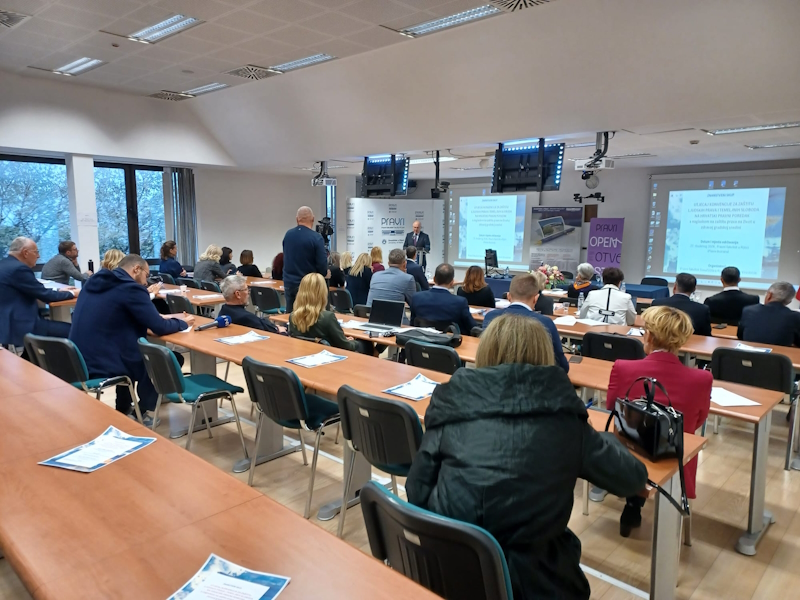Deputy Ombudswoman Dijana Kesonja participated in a conference dedicated to the role and significance of the Convention for the Protection of Human Rights and Fundamental Freedoms in the Croatian legal system, with a focus on the protection of the right to life in a healthy urban environment. The conference was held on 22 November 2024 at the Faculty of Law, University of Rijeka.
Deputy Kesonja highlighted that the Office of the Ombudswoman has been monitoring the implementation of the constitutional right to a healthy life and healthy environment in Croatia since 2013, as well as the realization of the right to a healthy, clean, and sustainable environment, which the UN General Assembly recognized in 2022 as a new universal human right.
At the conference, Deputy Kesonja presented the activities of the Office of the Ombudswoman, which in 2023 handled 293 cases related to the protection of this right, initiated based on complaints from citizens, civil initiatives, or on the Office’s own initiative. These proceedings were conducted in response to environmental and nature pollution, improper waste management, allegations of excessive noise, light pollution, and non-ionizing radiation from mobile operator base stations, as well as other forms of violation or endangerment of this right. Deputy Kesonja explained the procedures followed by the institution in these cases and the mandates under which it acts, with particular attention given to field visits to so-called “hot spots”, waste management centers, and other locations where environmental pollution and the consequences of climate change threaten citizens’ constitutional right to a healthy life and healthy environment.
Due to its many years of experience as one of the first national human rights institutions in Europe to work in the field of climate change and environmental protection, the Office of the Ombudswoman is recognized as an example of good practice.
Unfortunately, due to the growing negative impact of climate change on people’s lives, this topic is becoming increasingly important in the field of legislation. This was confirmed by the European Court of Human Rights, which in early April issued a landmark decision related to combating climate change with the aim of protecting human rights, clearly emphasizing the obligation of states to effectively address climate change in order to protect human rights, while leaving them broad discretion in the choice of means and methods to achieve this goal.
Alongside Deputy Kesonja, the conference—organized as part of the University of Rijeka’s project AB URBE CONDITA – Protection of the Right to Life in a Healthy Urban Environment—was attended by President of the Constitutional Court Miroslav Šeparović, Mayor of Rijeka Marko Filipović, Mayor of Novi Vinodolski Tomislav Cvitković, Vice-Rector of the University of Rijeka Senka Maćešić, Dean of the Faculty of Law in Rijeka Dario Đerđa, as well as judicial officials, university law professors, lawyers, and other experts engaged in the protection of the right to a healthy life and healthy environment.





